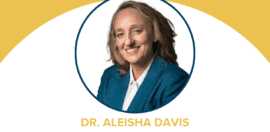Supporting young people to use the media as a tool for advocacy

2 August 2024 at 9:10 am
Heather McNab is a media and communications professional with a decade of experience working across journalism, government, politics and the not-for-profit sectors. Previously, Heather McNab has worked in strategic communications for the Sydney Lord Mayor, Clover Moore, and as media advisor for a Teal Independent for the 2022 federal election. Heather also has a background in local government communications after starting her professional life as a journalist at the Australian Associated Press and News Corp. Read on for our interview with Heather!
Describe your career trajectory and how you got to your current position.
I got my start as a junior journalist with local news division of NewsCorp in Sydney – people tend to overlook the importance of community and local news but this gave me a real opportunity to not only learn about the power of community-led movements, but also to sink my teeth into political reporting (covering the City of Sydney at a council level and having Anthony Albanese and Tanya Plibersek as the local Federal MPs was a pretty great initiation!) as the sole (!!) news journalist at the paper. From there I moved to the Australian Associated Press which was a whole other world – incredibly fast-paced with extremely high standards for speed, impartiality and accuracy. In my time across these two media organisations I covered multiple state, local, and federal elections, as well as the 2019/2020 bushfires and the first wave of the Covid pandemic.
I took what was intended to be a bit of a break, but which turned out to be the best decision of my career – a year after leaving journalism and during the second Covid lock-down I started a role in strategic community communications with the Sydney Lord Mayor, Clover Moore, and was able to work on campaigns including the inaugural Youth Voice to Parliament campaign – which resulted in 80 Federal MPs and Senators reading out speeches by young people in Parliament – and as campaign media manager for a ‘Teal’ Independent during the 2022 Federal election. The latter was such a life changing and edifying experience, making crystal clear to me the power of people-led movements towards social change, and gave me such hope for the future of our democracy – even though it needs a lot of work to actually reflect the people it serves.
In 2023 I started my current role with the Foundation for Young Australians, where I run the Youth Media Centre, supporting young people to engage with the media as a tool for advocacy. I spend my days getting to hang out with some incredible young people, and providing training and guidance for youth-led campaigns to leverage the media for social good.
What does this role mean to you?
This role is the perfect Venn diagram of my interests – democracy, young people, and journalism – but it is also pretty unique in Australia (I’m not aware of another position like it). It’s been disheartening to hear from many of the young people that I work with about the ways they have been disrespected, tokenised, overlooked or made to feel unsafe when engaging with the media – and that has really shaped my approach to equipping young people as much as possible to shift this.
I am so privileged to work alongside colleagues and youth-led campaigns who are dedicated to systems change and tangible justice, and I love seeing the phenomenal ways young people continue to show up for each other and for the future of our planet. I have learnt more about genuine and intersectional solidarity from these young people than I have from any other job – I hope I get to be a small part of their journey for the rest of my life!
Take us through a typical day of work for you.
I love the variety of my job! A typical day starts with, of course, reading the news from around Australia (and beyond), with a focus on anything to do with young people, democracy, civic engagement, and the media industry.
My favourite days are always when I’m lucky enough to be running a training program for the young people in our partner campaigns or broader network – I’m lucky enough to be able to travel quite often to meet and work with wonderful young people advocating for change around the country.
Outside of my work with FYA I’m privileged to be involved in some other amazing initiatives, so will usually be plugging away at those after hours – one of my next projects a panel on young people, voting and civic engagement which I’ll be hosting for the City of Sydney ahead of the upcoming NSW local government elections.
What is the biggest challenge you’ve encountered in your career, and how did you overcome it?
It would have been when I decided to leave journalism – I was incredibly burnt out and needed a break, but felt a real sense of loss of identity and purpose. I took a communications role which was a lot more stable, and which gave me time to build new skills and the space to figure out what my values were, and how to align those with my work. I spent a lot of time reading the news that year, and decided I didn’t want to sit on the sidelines and just report on social movements and communities agitating for change – I wanted to be part of it.
If you could go back in time, what piece of advice would you give yourself as you first embarked on your career?
Trust your gut and follow your values. Generally if something doesn’t feel right, it isn’t – so spend time figuring out what your values are and how they will guide you.
How do you unwind after work?
My dog Albie keeps me busy outside of work, and thankfully he likes going on very long walks. I like to plug in with a podcast and enjoy the last of the sunshine before heading over to a friend’s place for dinner.
What was the last thing you watched, read or listened to?
I am chronically addicted to pop culture, so I spend far too much of my time watching tv and movies – I also run a little book instagram with two of my friends and host several book clubs (it’s a bit of a problem!).
I recently read and loved a debut speculative fiction novel by British-Cambodian author Kaliane Bradley called The Ministry of Time – which explores what might happen if the UK Government had the power to bring people from the past to the present, and all the moral and scientific complications which follow. It has a lovely romance element to it, but also delves into colonialism, autocracy, ethics and technology.







